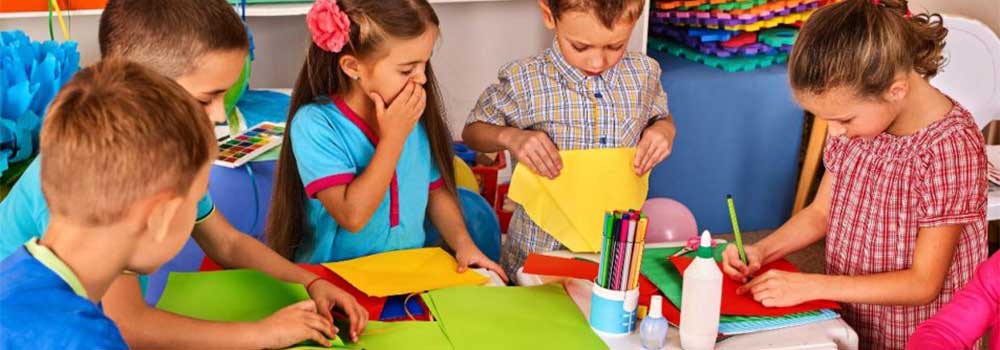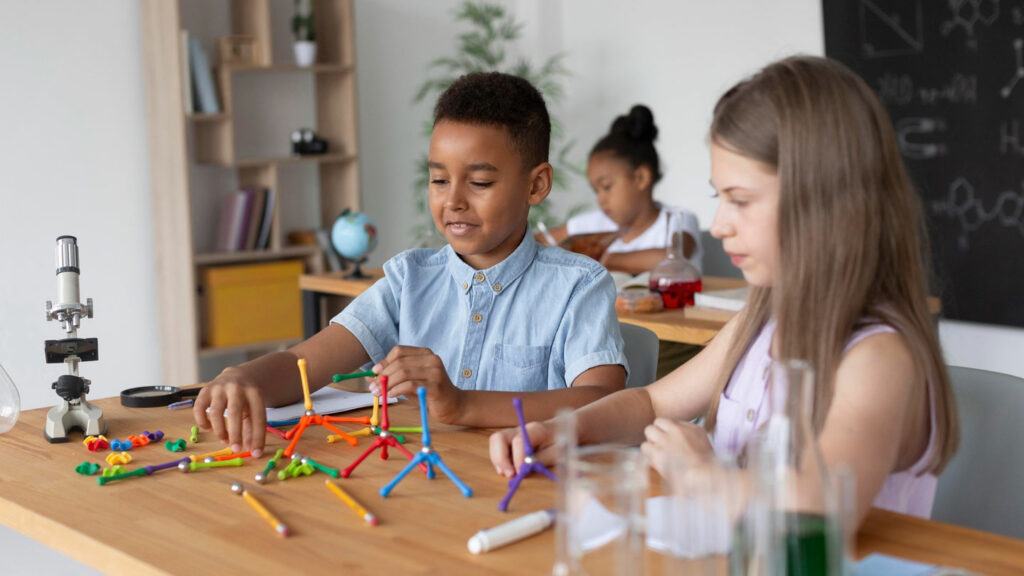In Project Prowess, students get a chance to learn in an engaging, dynamic way. A student-led project-based learning (PBL) program emphasizes student empowerment. It helps students develop critical thinking skills and collaborate.
Using projects with real-life relevance, Project Prowess immerses students in the principles of Project-Based Learning.
Please continue reading before looking at impact of project based learning on students. This methodology puts the student at the center of their learning process.
Understanding The Foundations Of Project-Based Learning

With a strong focus on practicality, Project Prowess uses PBL principles as a guiding principle, ensuring that students have access to relevant real-world concepts while anchoring their learning.
The evolution of PBL in education involves dynamic shifts from traditional methods that emphasize adaptability. In PBL, objectives align with curriculum goals, enabling the learning experience to be grounded in purpose.
A central issue of Task Ability is that it uses innovation as an impetus to improve the dynamism of each venture. The essential arrangement of undertaking targets with educational program objectives turns into the subsequent foundation.
Integrating innovation raises the undertaking elements, encouraging an intuitive and connecting with learning climate for understudies. An intentional plan guarantees pertinence to understudies’ lives, imparting a feeling of genuine association.
Surveying Venture Based Learning Results

It is the dynamic, nuanced nature of assessment that makes Undertaking Capacity so effective. By changing formative and summative procedures, the principles guarantee an all encompassing comprehension of understudy progress at both the individual and gathering level.
Content authority and cycle abilities are always coordinated as part of the assessment interaction in an effort to reflect the complex concept of PBL results. Assessment in Ability to undertake includes a cautious equilibrium of formative and summative techniques.
To catch the embodiment of content power and cooperation capacities, evaluation rules should be extended both independently and by and large to guarantee a total comprehension of understudy improvement according to the point of view of PBL.
Defeating Difficulties In Venture Based Learning
All through Task Capacity, investigating difficulties is a fundamental piece of the growing experience. Vital arranging is significant for guaranteeing each undertaking is on time and on spending plan.
Furthermore, the accentuation on unprejudiced speculation highlights the need to develop a helpful learning climate. Investigating difficulties is a fundamental part of Venture Capacity, and this requires an essential way to deal with overseeing time imperatives.
A fair learning climate is upgraded by guaranteeing each understudy contributes intensely to the helpful growing experience. This obligation underlines Task Capacity’s extraordinary way to deal with learning.
Real-World Application of Project-Based Learning
The presentation of Project Ability goes beyond the hypothesis to demonstrate substantial application through case studies and progress stories. The portrayals exhibit expanded understudy responsibility as well as the advancement of long-run capacities.
Embracing dynamic undertaking based learning has exhibited undeniable outcomes. These cases show the way that progressive PBL can be in certifiable settings. Notwithstanding theoretical forms, Venture Capacity shows unquestionable application in progress stories and contextual analyses.
A striking number of portrayals exhibit how dynamic undertaking-based learning prompts an improved responsibility and long haul skill advancement. The models above act as obvious proof that PBL has an exceptional effect inside an ensured instructive setting.
Embracing Advancement For Task Based Learning Achievement
In the area of Task Capacity, embracing headway ends up being the vital part for progress. It is fundamental to develop a climate helpful for imagination and advancement.
Imaginative teaching techniques and student engagement in online learning, coupled with state-of-the-art tools. In order to ensure success in Project Ability, strategic development serves as the cornerstone.
It is imperative to empower an outlook that is open to inventive investigation. In Project Ability, the hug of development is non-debatable for making progress, while developing a climate that sustains imagination remains an important goal.
Conclusion
Embracing this approach allows students to control every aspect of their educational journey. By embracing this approach, academic development can be supported in a variety of ways.
A success story and a case study demonstrate that Project Ability transcends hypothesis and finds genuine application. Outlines demonstrate heightened student commitment and long-term expertise development.
In promoting the reception of Project Ability, we envision a future where dynamic learning propels students towards greatness.


